

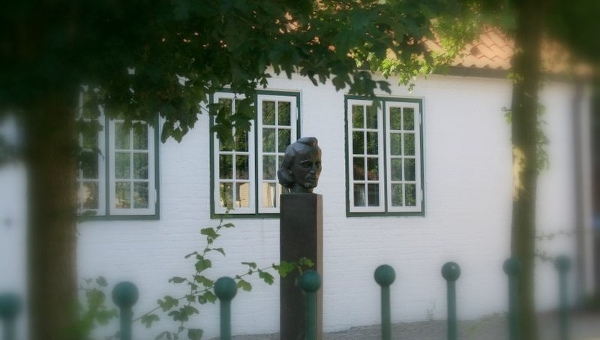
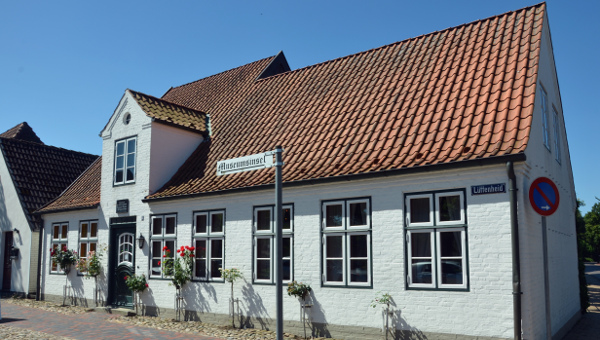
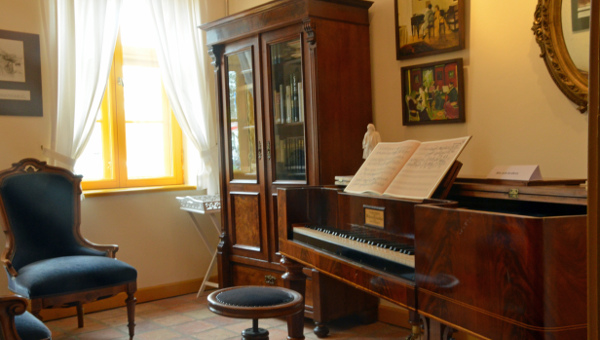
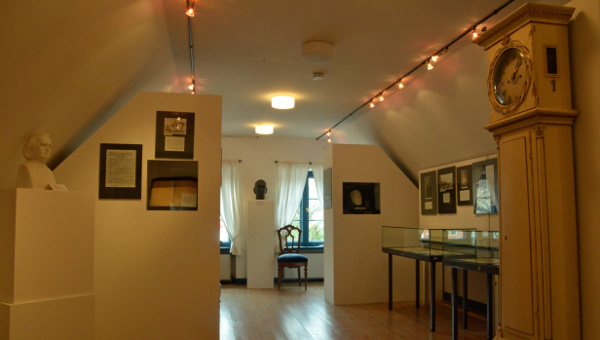
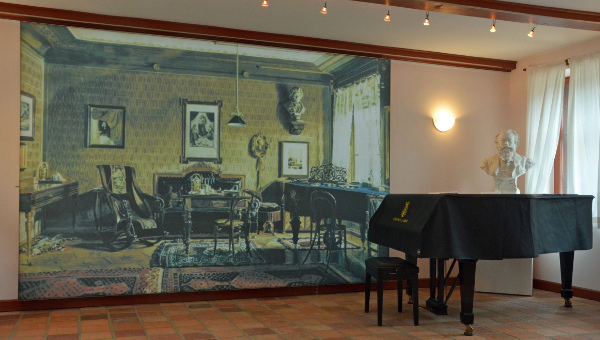
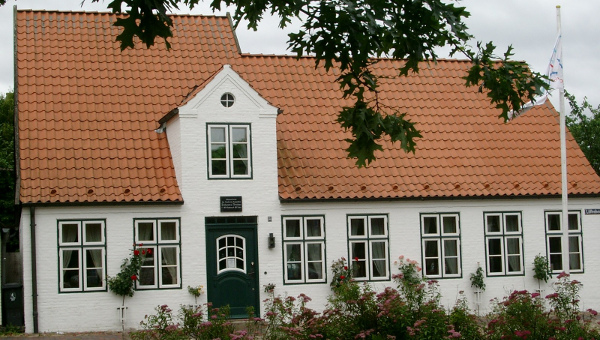
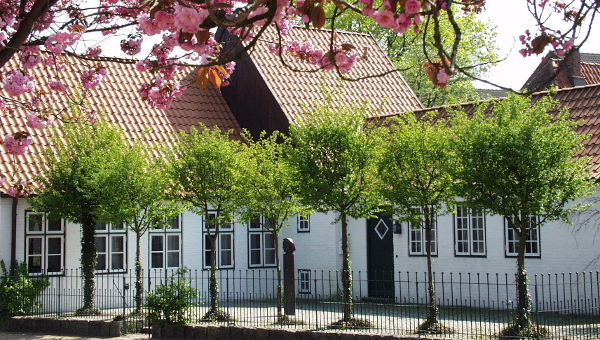
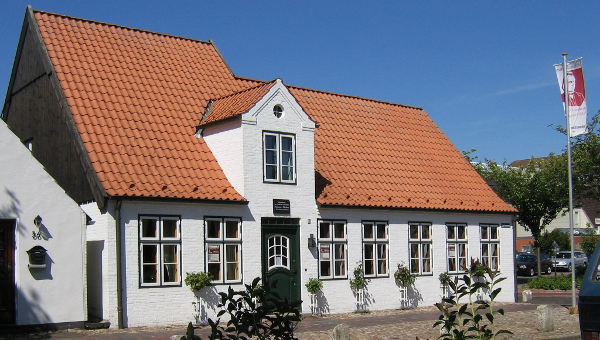
Lüttenheid 34
25746 Heide
Telefon +49.481.63186 oder +49.481.6837162
Web: www.brahms-sh.de
April bis Oktober:
Di bis Do 11.30–15.30 Uhr
Freitag 11.30-13.30 Uhr
Samstag 13.30–15.30 Uhr
November bis März geschlossen
Unter dem spitzen Giebel an der Vorderfront findet der Besucher auf einer Tafel den Hinweis auf die Familie von Johannes Brahms, in deren Besitz das Haus von 1819 bis 1887 war.
1988 erwirbt die Brahms-Gesellschaft Schleswig-Holstein das Brahmshaus in Heide, der Geburtsstadt des Vaters Johann Jacob Brahms (1807–1872) und fängt ein Jahr später mit der Umgestaltung an. 1990 kann es seiner neuen Bestimmung übergeben werden. Sehr schnell entwickelt es sich zu einem kulturellen Anziehungspunkt.
Durch die Ausstellung „Johannes Brahms/Norddeutsche Wurzeln und Bindungen – Wichtige Freunde und Bekannte“ wird eine stetig wachsende Besucherschar angezogen. Bilder und erklärende Texte geben Auskunft über die Heider Vorfahren des Komponisten, die Freundschaft zu dem aus Dithmarschen stammendem Dichter Klaus Groth und zeichnen anhand vieler Exponate wichtige Stationen im seinem Leben nach.
Hier im Brahmshaus finden Konzerte, Vorträge und Kurse statt sowie die jährlichen Planungen für die Brahms-Wochen und für die Vergabe des inzwischen hochrenommierten Brahms-Preises.
Deutschland verfügt über musikalische Traditionen und Nachlässe von außerordentlichem Wert: Händel, Schütz und Bach, Beethoven, Mendelssohn, Schumann, Brahms und Wagner sind - um nur einige Namen zu nennen - weltweit bekannte und geschätzte Komponisten. Ihr Wirken hat eine einzigartige Musiklandschaft wesentlich mitgeformt.
Zahlreiche Orchester, Chöre und Ensembles, renommierte Musikfestivals und -reihen, Musikerhäuser mit Museen, öffentliche Archive und Bibliotheken, aber auch private Sammlungen bewahren ihr musikalisches Erbe.
Diesen unschätzbaren Fundus gilt es immer wieder neu zu beleben und für die Gegenwart zu erschließen. Den in der Arbeitsgemeinschaft Musikermuseen Deutschlands zuusammengeschlossenen Häusern kommt dabei eine wichtige Rolle zu. In ihnen begegnen wir dem Werk von Musikern und Komponisten, die die Kulturnation Deutschland außerordentlich bereichert haben. Über das individuelle Portrait, über die Vermittlung des einzelnen Œuvres hinaus tragen die Musikermuseen aber auch zur Pflege musikalischer Tradition insgesamt bei. Die vorliegende Broschüre unterstreicht diesen Aspekt der Zusammenschau, und sie lädt zu einer Reise in die Musikgeschichte Deutschlands ein. Ich wünsche diesem Reiseführer regen Gebrauch und eine große Resonanz.
Bernd Neumann, MdB
Staatsminister bei der Bundeskanzlerin
Der Beauftragte der Bundesregierung für Kultur und Medien
Zitat: Vorwort zur Broschüre der Arbeitsgemeinschaft "Musikermuseen in Deutschland", 2007.